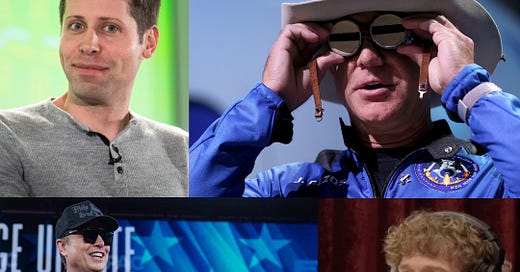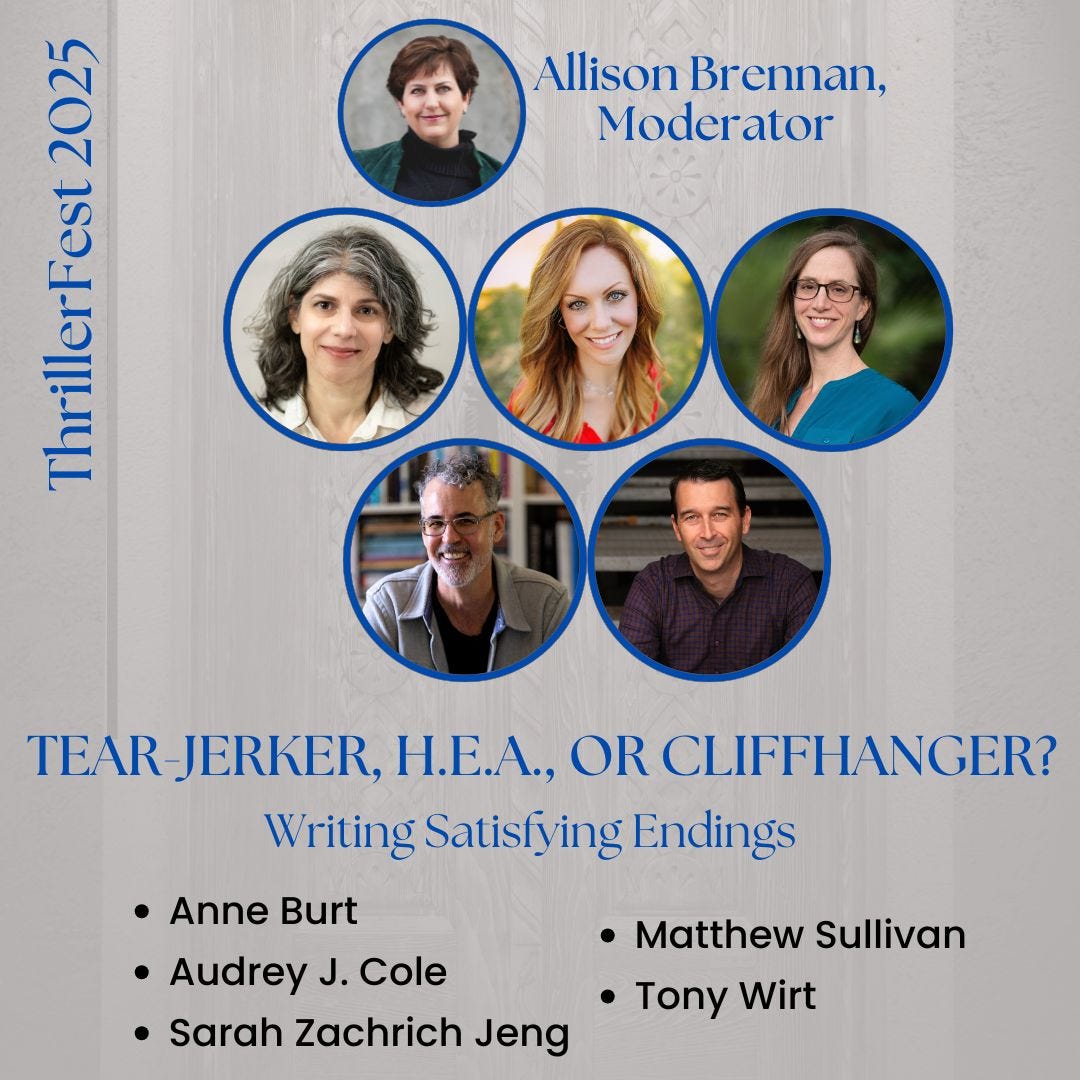Boy, did we think we’d ever get here? To a place where even if we finally got our flying cars, they’d probably be so awful that riding in one would have the risk level of licking a meat slicer at a Boar’s Head plant?
If the idea of enshittification seems like it’s been with us a lot longer than it has, I think it’s because we are all tired. Coined in 2023 by Cory Doctorow, “enshittification” refers to tech companies’ practice of increasing the cost and decreasing the value of their products once they’ve ensnared enough users (often by eliminating the competition so it’s difficult to take one’s business elsewhere). Think Amazon selling books at a loss until other booksellers go out of business, then gaming search results to privilege ad buyers. Think Meta acquiring Instagram, then forcing you to “boost” posts to get seen by more than a few of your followers.
Generative AI has been stuck in the “reeling in users with freebies” phase for a while now. Within and adjacent to the publishing industry, we’ve seen so many rounds of AI fuckery just in the past few weeks that it’s making me want to flee into the woods and start my bog witch era:
James Frey, best known for his “memoir” of drug addiction that turned out to be actual fiction, has a new novel out. It’s a Book of the Month Club pick, which practically guarantees bestseller status. As Frey has admitted to (boasted of?) using generative AI to produce his work, this raises legitimate concerns about which authors continue to be rewarded for questionable behavior. I guess if you were looking for the perfect ambassador for a plagiarization-and-environmental-destruction machine, you could do worse than a white man with proven ability to weather multiple self-inflicted scandals.
A BookBub survey of authors showed that 45% use generative AI in some capacity (and three-fourths of those authors do not disclose their AI use to their readers)
Former Meta head of global affairs Nick Clegg claimed that a requirement to get artists’ consent to use their work to train AI models would “kill the AI industry” (apparently killing copyright protections instead was the better option?)
An AI-generated “Summer Reading” list filled with non-existent titles was syndicated by several prominent legacy newspapers
Audible announced they would start using AI narrators for audio books, which would be a major threat to professional voice actors and narrators
Worldcon’s choice to use ChatGPT to vet panelist applications was not well received by the SFF community
To me, all of this indicates we’re at a point where proponents of gen AI in creative fields are trying to eliminate the competition (i.e., human creators). Or at least devalue our work to the point where it’s even harder to make a living doing it.
Fortunately (?), this is somewhat hampered by the fact that gen AI is still kind of shitty, and it’s not clear whether it will get better. In fact, as more and more slop is produced and used to train newer models, the output will get worse (garbage in, garbage out).
Then again, we have already resigned ourselves to making do with crap in so many areas of our lives. Why would art be any different? Especially when much of it has been commodified into “content” that we “consume”?
Even if you are a reader who values the individual perspectives, life experience, and soul behind the books you read, if enough authors get priced out of the field (or when enough undisclosed AI slop floods the market) you may no longer have the option of choosing.
I’ve written two sci-fi-flavored thrillers, both of which have major plot shifts around tech that doesn’t work as intended. (Hey, am I an oracle or am I a goddamn oracle??) I’ve always been interested in how technology can both enhance and complicate our lives. In 2020, after I sold my first novel, I pitched several ideas for my second. One of these was “The Dead Zone meets the Murderbot Diaries,” a near-future tale about a guy who wakes up after four years in a persistent unresponsive state to find that the AI implanted to repair his brain damage has not only given him superhuman abilities, but is conscious and self-aware.
That was obviously not the book I ended up writing, about two former best friends who use a device that allows them to swap bodies with each other. But I’d gone deep enough into the idea to do quite a bit of research on artificial intelligence and brain-computer interfaces, including Elon Musk’s Neuralink. While Neuralink has entered human trials and so far there have been no huge public disasters, I would argue that Musk’s extracurricular antics have been pretty destructive to the idea that he in any way knows what he’s talking about.
This is just one reason why, five very long years after pitching my AI book, I find myself not just skeptical of claims about tech’s promise, but deeply bored by them. Our current dystopia has played out in ways we didn’t predict not because they were beyond our capability to imagine, but because they are so stupid. Who would have foreseen 20 years ago that U.S. presidential elections would be affected by a site that won’t even load half the time?
These days I can’t imagine writing a novel about a sentient, all-powerful AI because it would be almost impossible for me to suspend my own disbelief, let alone expect my readers to do so. It’s easier for me to envision a whole-ass magical world, parallel to and mostly secret from our own, than it is to believe in artificial “intelligence” in a way that interests me, which is in terms of its potential personhood. Writing an AI that’s nothing more than a resource-sucking, junk-producing, inequality-exacerbating machine is just…contemporary fiction lol.
The problems that technology creates and complicates in science fiction are manifested with magic in fantasy, but it all comes down to people and their messy feelings and stupid decisions and reluctant but necessary personal growth. And in my novel-in-progress some of those people just happen to be hot fae.
So is there a call to action re: AI? As a reader, you can choose not to support authors who are vocally trying to normalize the use of generative AI in creative works. (I hesitate to say “don’t support authors who use AI” because that leads to speculation about who is using it and not disclosing, which can undeservedly ruin careers and demonize perfectly innocent em dashes.) You can advocate for legislation that restricts the use of copyrighted works to train AI, and further restricts copyright to apply only to human-created works.
If you’re a writer, you can do the above as well as refrain from using chatbots to write (which to my mind includes brainstorming, world building, plotting and outlining, or any other supplemental tasks. It’s all writing, bestie!) You can try to get clauses in your publishing contracts that ensure your book’s cover illustrators/designers and audiobook narrators will be human, and that prohibit your work from being used to train AI models. Though these negotiations can be a challenge for authors who don’t have a lot of power.
These could just be pebbles in the waterfall and we’re all doomed. But as someone who would like to continue writing and publishing, I would prefer to think that most people prefer art that comes from the unique perspectives of humans instead of content extruded from a computer.
Author updates
I’ll be at Thrillerfest on June 20-21! Looking forward to chatting with these amazing authors about writing satisfying endings.
Weird thing I am researching
2010s internet culture and what ever happened to some of the big- and medium-time bloggers from that era.
Reading/watching/listening
Happy Pride Month! Some of my favorite queer media I’ve been reading/watching/listening to lately:
Read: As Long As You're Mine by Nekesa Afia
I don’t know how you could see this cover and not immediately want to read the book, but just in case: Old Hollywood, an actress hiding an explosive secret, a ballerina trying desperately to uncover the truth about her family, and people generally being messy. It’s out October 24 but you can preorder it!
Watching: Murderbot
The show about my favorite depressed corporate-owned security construct (who is aroace and genderless) is really good, y’all. The episodes are short but they do a lot with those 20-some minutes. Unfortunately for my blood pressure, they are drip-fed weekly and end on cliffhangers.
Listening: Wet Leg, plus bonus Orville Peck & Willie Nelson
If you enjoy my ramblings, you might like my books!
The Other Me, which PopSugar called a “Black Mirror-esque rabbit hole,” is an inventive page-turner about the choices we make and the ones made for us.
When I’m Her asks the question: How far would you go to get even with the woman who ruined your life?








I totally you shelving your more AI-centric book idea but science fiction from YOU about this phenomenon is exactly what I'd want to read . . . it's so scary and also somehow boring and also I'm so fucking sick of it
Bummed I’m going to miss you at Thrillerfest! Hope you have a great time!